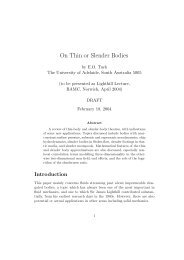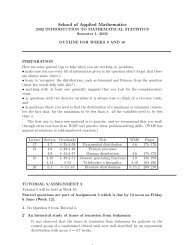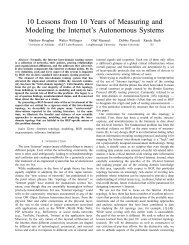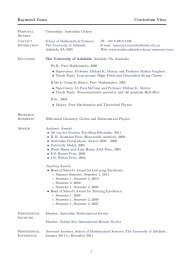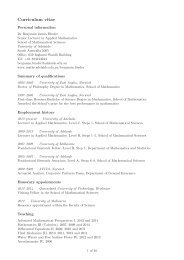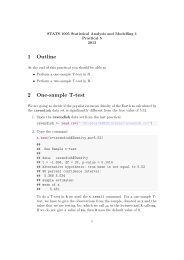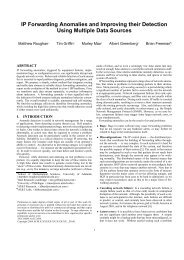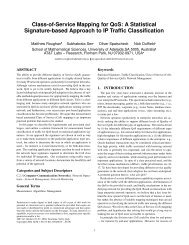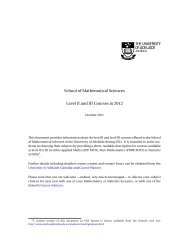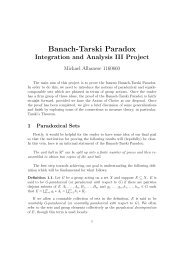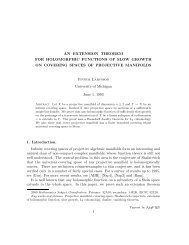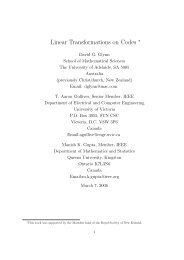PDF of Lecture Notes - School of Mathematical Sciences
PDF of Lecture Notes - School of Mathematical Sciences
PDF of Lecture Notes - School of Mathematical Sciences
You also want an ePaper? Increase the reach of your titles
YUMPU automatically turns print PDFs into web optimized ePapers that Google loves.
1. DISTRIBUTION THEORY<br />
Remarks<br />
This is a simple generalisation <strong>of</strong> the standard limit,<br />
(<br />
1 +<br />
n) x n<br />
= e x .<br />
lim<br />
n→∞<br />
Consider a sequence <strong>of</strong> i.i.d. RVs X 1 , X 2 , . . . with E(X i ) = µ, Var(X i ) = σ 2 and such<br />
that the MGF, M X (t), is defined for all t in some open interval containing 0.<br />
n∑<br />
Let S n = X i and note that E[S n ] = nµ and Var(S n ) = nσ 2 .<br />
i=1<br />
Theorem. 1.11.2 (Central Limit Theorem)<br />
Let X 1 , X 2 , . . . , S n be as above and let Z n = S n − nµ<br />
σ √ n<br />
. Then<br />
Pro<strong>of</strong>.<br />
L[Z n ] → N(0, 1) as n → ∞.<br />
We will use the fact that it is sufficient to prove that<br />
M Zn (t) → e t2 /2<br />
for each fixed t<br />
[Note: if Z ∼ N(0, 1) then M Z (t) = e t2 /2 .]<br />
Now let U i = X i − µ<br />
σ<br />
and observe that Z n = 1 √ n<br />
Since the U i are independent we have:<br />
n∑<br />
U i .<br />
i=1<br />
M Zn (t) = { M U (t/ √ n) } n<br />
⎡<br />
⎣<br />
M aX (t) = E[e taX ]<br />
= M X (at)<br />
⎤<br />
⎦<br />
Now,<br />
E(U i ) = 0 ⇒ M ′ U(0) = 0,<br />
Var(U i ) = 1 ⇒ M ′′<br />
U(0) = 1.<br />
74





